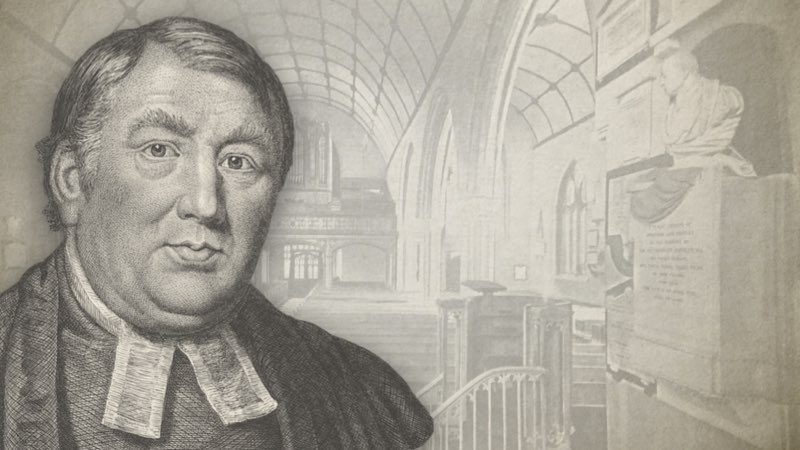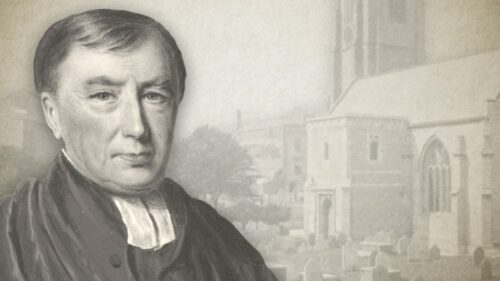
July 13—Morning Devotion
“This year thou shalt die.”—Jeremiah 28:16
I have often thought this passage, pronounced on the lying prophet, a most suitable sermon for a birthday portion, to be sounded in the ears of the sinner: and if qualified with the possibility and probability which arise out of our dying circumstances, it might, when commissioned by the Lord, have a blessed effect. My soul, take it for the meditation of thy birth-day. It may be fulfilled this year; it must be fulfilled some year; it cannot be a very distant year; and there is a birth-day when it shall be passed upon thee in the year. And why not the present? Pause, my soul, and meditate upon it, as if this were the very year. And what though carnal men celebrate the anniversary of their birth-day, as best suited to their carnal minds, let thine be wholly spiritual. If indeed a man came into the world laughing, there might be a suitable correspondence in commemorating the annual return of such a birth with laughing. But if cries first indicated the birth of a poor helpless creature, born to want, and the subject of sin and misery; can rioting and folly be the proper celebration of such an event? And is there no joy suitable on the return of a man’s birthday? Oh yes, there is, and ought to be, real heal-felt joy with every child of God. When a man begins to count birth-days in grace, every return calls for holy joy in the Holy Ghost. Not for that he was born an intelligent immortal creature only, but for that he was made a new creature in Christ Jesus. Not for that he came into the world in a state of nature only, but that he was brought also into a state of grace. Not for that he was of the stock and lineage of Adam only, but of the seed of Christ. Here is an alliance royal, holy, heavenly, divine! My soul, how many moons or years in the new life canst thou mark down? Let this be the arithmetic in thy calculation. And if, like the herald of the morning, the voice should say, “This year thou shalt die:” Oh how sweet to answer, Lord, my times are in thine hands! Can they be in a wiser, or more tender, or more loving hand than Jesus’s? Precious Lord, wean me from every thing here below, that I may be living nearer with thee, and in thee, and to thee; that as the last year of my pilgrimage lessens to the month, and the month to the week, and the week to the day, nay to the very hour and moment of my departure from a body of sin and death, the last expiring words on my trembling lips may be of Jesus; and thine, Oh Lord, come home with power and sweetness to my soul, like thine to him upon the cross: “To-day shalt thou be with me in paradise.”
Robert Hawker (1753-1827) was an Anglican (High-Calvinist) preacher who served as Vicar of Charles Church, Plymouth. John Hazelton wrote of him:
“The prominent features…in Robert Hawker's testimony…was the Person of Christ….Dr. Hawker delighted to speak of his Lord as "My most glorious Christ.” What anxious heart but finds at times in the perusal of the doctor's writings a measure of relief, a softening, and a mellowing? an almost imperceptible yet secret and constraining power in leading out of self and off from the misery and bondage of the flesh into a contemplation of the Person and preciousness of Christ as "the chiefest among ten thousand and the altogether lovely." Christ and Him crucified was emphatically the burden of his song and the keynote of his ministry. He preached his last sermon in Charles Church on March 18th, 1827, and on April 6th he died, after being six years curate and forty-three years vicar of the parish. On the last day of his life he repeated a part of Ephesians 1, from the 6th to the 12th verses, and as he proceeded he enlarged on the verses, but dwelt more fully on these words: "To the praise of His glory Who first trusted in Christ." He paused and asked, "Who first trusted in Christ?" And then made this answer: "It was God the Father Who first trusted in Christ."
Robert Hawker on the Biblical Covenants (Complete)
Robert Hawker's Poor Man's Morning Portions





